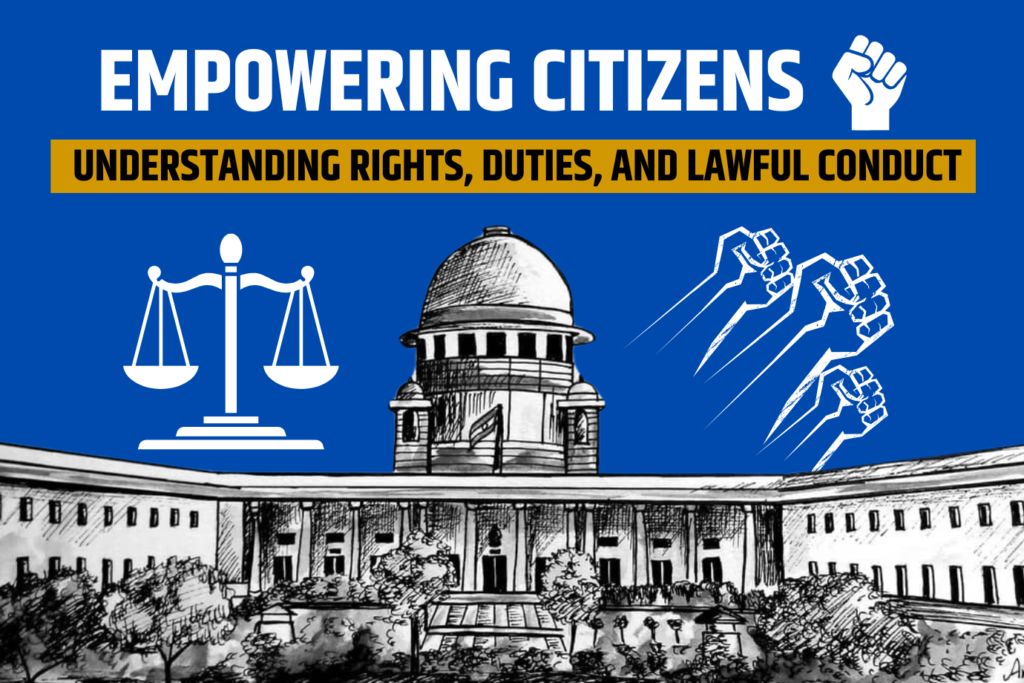Empowering Citizens: Understanding Rights, Duties, and Lawful Conduct
Legal awareness is an essential aspect of being a responsible and informed citizen. It empowers individuals to exercise their rights, fulfill their duties, and contribute to maintaining law and order in society. Here’s a comprehensive guide to the basics every citizen should know.
Fundamental Rights and Their Importance
Every citizen must be aware of their fundamental rights, which are enshrined in the Constitution of India. These rights ensure equality, freedom, and dignity for all. The key fundamental rights include:
1. Right to Equality: Protection against discrimination on grounds of religion, race, caste, sex, or place of birth.
2. Right to Freedom: Includes freedom of speech and expression, movement, association, and the right to practice any profession.
3. Right to Protection: Protection of life and personal liberty under the rule of law.
4. Right Against Exploitation: Prohibition of forced labor, child labor, and human trafficking.
5. Cultural and Educational Rights: Preservation of cultural heritage and minority rights.
6. Right to Constitutional Remedies: The ability to seek legal remedies in case of rights violations.
Fundamental Duties of Citizens
With rights come responsibilities. Article 51A of the Constitution outlines the fundamental duties of every citizen:
– Respect the Constitution, national flag, and anthem.
– Protect India’s sovereignty, unity, and integrity.
– Promote harmony and the spirit of common brotherhood.
– Safeguard public property and avoid violence.
– Strive towards excellence in all spheres of activity.
Key Legal Provisions Every Citizen Should Know
1. Right to Information (RTI): Citizens have the right to seek information from government departments under the RTI Act, 2005.
2. Arrest and Detention: The police cannot arrest or detain a person without sufficient cause. Arrested individuals must be presented before a magistrate within 24 hours.
3. Consumer Protection: Under the Consumer Protection Act, consumers can seek redressal for defective products or unfair trade practices.
4. Protection of Women: Laws like the Domestic Violence Act, 2005, and provisions against sexual harassment safeguard women’s rights.
5. Right to Education (RTE): Children between the ages of 6 to 14 have the right to free and compulsory education.
How Citizens Can Help Maintain Law and Order
1. Abide by Laws: Obey traffic rules, pay taxes, and avoid activities that disrupt societal harmony.
2. Report Crimes: If you witness a crime, report it to the authorities without hesitation.
3. Participate in Civic Duties: Engage in community initiatives and help uphold the law through cooperation with law enforcement agencies.
4. Educate Others: Spread awareness about legal rights and responsibilities among family, friends, and neighbors.
Conclusion
An informed citizenry is the cornerstone of a robust democracy. By knowing your rights, fulfilling your duties, and actively contributing to law and order, you can help build a fair, just, and orderly society. Legal awareness is not just an individual’s safeguard—it is a collective strength that uplifts the nation as a whole.

